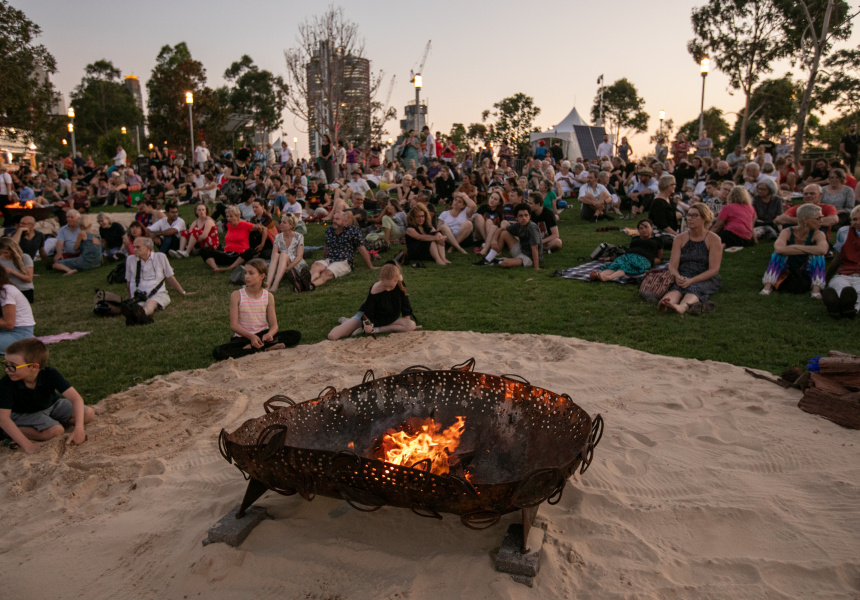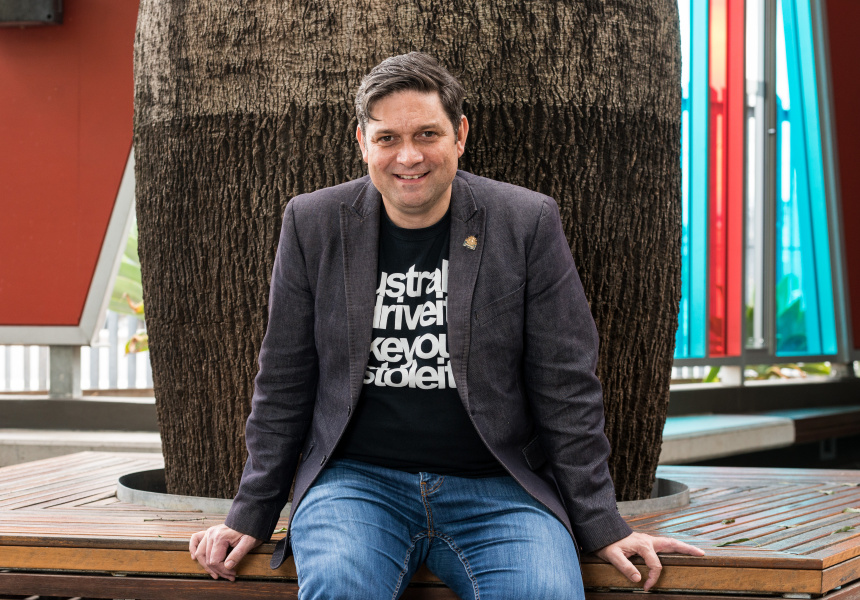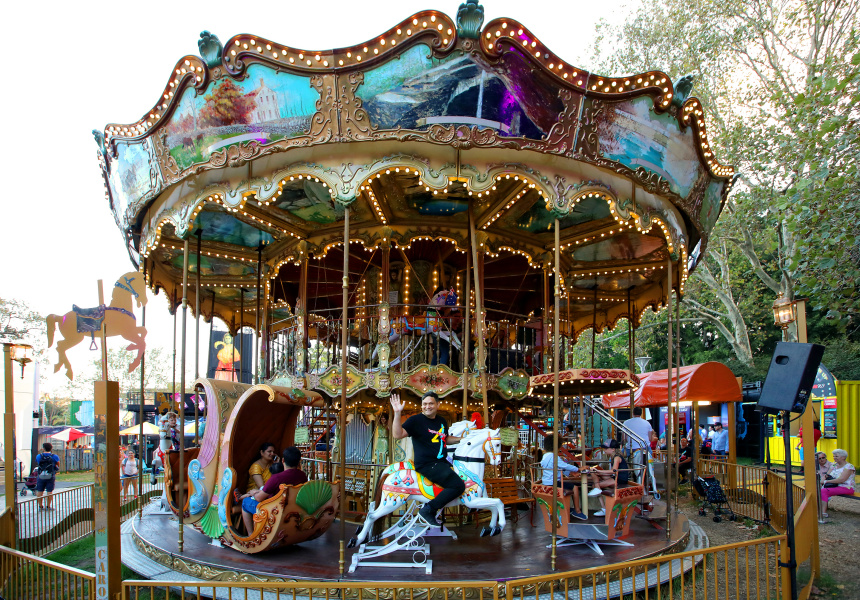Last year on January 25, 4000 people gathered at Barangaroo from dusk until dawn the following day to reflect on what life was like before the First Fleet landed on these shores on January 26 – now officially commemorated as Australia Day. Sydney Festival director Wesley Enoch invited Indigenous and non-Indigenous Australians alike to consider our country’s Aboriginal heritage, as well as the impact of colonial institutions and multicultural migration. It wasn’t a protest or a political statement,
but it was hugely successful – there was so obviously a desire for an alternative to nationalistic flag-waving and getting drunk – leading him to do it again this year.
“There was a real sense of the need for it,” Enoch tells Broadsheet. “We’re at a time when we’re questioning what January 26 means for our nation, and people are looking for a way to show solidarity [with the Indigenous community]. The Vigil is becoming an open invitation to do that. It’s a space to sit and reflect and think upon Aboriginal experiences. People really respect the opportunity.”
Like last year, the ceremony will begin at 6pm with a smoking ceremony, followed by a procession led by Aboriginal elders from Town Hall down George Street to Barangaroo. Enoch says that George Street runs along an ancient Aboriginal pathway; the procession will reopen a traditional journey, reconnecting the local Indigenous community with part of its history. The Vigil itself begins at 8pm and runs until 6am. The free campfire-side event will include yarning circles; performers, such as Indigenous rock musician Dan Sultan; dancers; and choral poetry.
Stay in the know with our free newsletter. The latest restaurants, must-see exhibitions, style trends, travel spots and more – curated by those who know.
SIGN UPThe Vigil will take place beneath Proclamation, a Sydney Festival installation of 250 flags – one for every year since Captain Cook arrived – designed by the people of Sydney.
“It’s based on this strange idea that if you fly a flag in someone’s country, you own it,” Enoch says. “The idea came about after we’d been in conversation with [Australian artist and director of the Biennale of Sydney] Brook Andrew about flags. This idea of flying flags is a bit of a weird thing: put some fabric on a pole, say some words and you own something.”
The Vigil will be held at a place of special significance on the edge of Sydney Harbour, where James Cook first landed. Enoch says it helps people to have a visual marker of where the boats passed through the harbour. “We’ll be connecting through time to that place, in front of all the water that is right there. I would like people to think about what the world was like then.”
He is indifferent, though, as to whether or not we change the date of Australia Day – a debate that has been dividing people around the country. “The history is that the First Fleet arrived on January 26, and we can’t change that – it’s done. What we’re having is a conversation about the day before. I’m not convinced one way or another that we should change the date of Australia Day. There’s bigger discussions about the meaning of the day, rather than the day it happens on.”
The concept of marking Australia Day with an annual public holiday on January 26 is relatively new. It wasn’t until 1935 that all states and territories began referring to January 26 as “Australia Day”. And the states and territories didn’t consistently celebrate the public holiday until 1994.
“I’m not here to tell people what to do,” he says. “The Australia Day Council’s motto this year is ‘reflect, respect, celebrate’. And there’s something about those three very distinct ideas that we should be thinking about on that day. We should reflect on Indigenous Australia, the British colonial project and recent immigrants.”
In the past, Enoch has said that the concept of having one day to celebrate a range of emotional subjects, including the arrival of the British and our nation’s contemporary identity, is flawed. He looks to the United States as a possible solution – it has three different days to observe its history: Columbus Day, Thanksgiving and Independence Day. Australia, instead, has rolled it all into one confused anniversary.
Funnily enough, Enoch thinks recently naturalised migrants have a stronger connection to Australia Day than a lot of non-Indigenous people who were born in Australia, because many citizenship ceremonies take place on January 26. “There’s a real sense of asking, ‘How do we extend that sense of ritual and ceremony?’ National days around the world have a nationalist fervour to them. We want something a little bit more. We don’t just want the fireworks; we want more of a conversation about who are.”
The Procession will begin at Town Hall at 6pm on Saturday January 25. The Vigil runs from 8pm until 6am at Barangaroo Reserve and will be Auslan interpreted.



